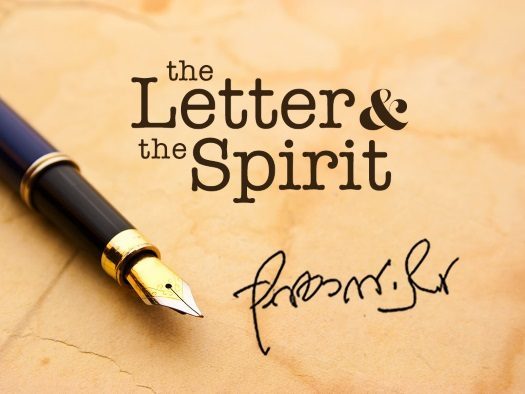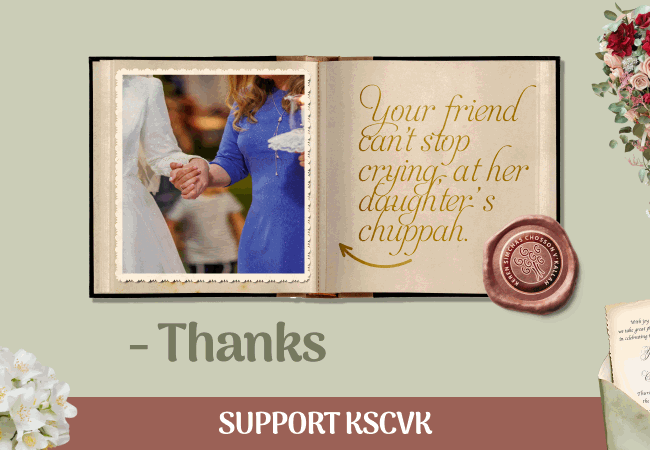
Weekly Letter: A Jewish Will
This week, in connection with our parsha, in which Yaakov takes leave of his children before his passing, and his blessings for each of them, we present a letter in which the Rebbe makes some important points about a Jewish will. The letter, written originally in English, is from the archives of the Rebbe’s trusted secretary Rabbi Nissan Mindel.
By the Grace of G-d
6th of Shevat, 5728
Brooklyn, N.Y.
Mrs.
New York, N.Y.
Blessing and Greeting:
I duly received your letter with the enclosed copy of a proposed will.
First of all, I wish to refer to the first part of your letter in which you write about the birthdays of yourself, husband and children. I wish each and every one of you hatzlocho materially and spiritually. These generally go hand in hand together, and insofar as a Jew is concerned they not only go together, but with the supremacy of the spiritual over the material. Such supremacy does not mean the negation of the material but, on the contrary, to make the material a means and a vehicle for all things good and holy. I particularly send you my prayerful wishes that you and your husband should bring up your children to a life of Torah, chupah and good deeds, in good health and happiness with much hatzlacha for your husband in his field and for you in yours.
The present days, approaching the yartzeit of my father-in-law of saintly memory, at whose holy resting place each one and all of you will be remembered, are especially auspicious.
May G-d grant that you should have good news to report in all the above.
With blessing,
P.S. Inasmuch as you invite my suggestions in regard to your proposed will, a matter which in this country is an accepted practice to make it early in life, and it is a segula for long life – I will offer the following suggestions, although I do not, of course, touch upon any of the aspects relating to investments and the commercial handling of the estate, etc.
Firstly, there is in my opinion an omission of an essential point, namely the matter of tzedakah. To be sure, those who will, after one hundred and twenty years, inherit their share of the estate will, please G-d, make provisions for the distribution of tzedakah of their own good will. Nevertheless it is a personal mitzvah to provide for tzedakah rather than to leave it for others to do so, even the closest members of the family. Moreover, the provision for tzedakah should be one of the first clauses of a Jewish will.
Needless to say, the amount of tzedakah provided for in the will should be according to the generosity of the testator. But if you wish my opinion in this matter, I would suggest that the amount so provided should be chomesh/one fifth of the net estate, with the proviso that the distribution of the tzedakah should not be delayed until the whole estate is properly and fully evaluated, but that a proportionate amount of any and all distributions under the will should automatically be deducted for tzedakah.
A further point which is also essential and indeed, should perhaps even precede the tzedakah clause, as customary among Jews, is the matter of arranging for the various expenses connected with funeral, including tombstone, etc., in accordance with strict orthodox Jewish observance, so that these expenses should again not be left to the discretion of even the closest surviving members of the family.
In addition to the above, there are several other observations which I would like to make to make sure that everything be done in fullest accord with the Torah and yiddishkeit, especially in the matter of a Will. Consequently, unless there are compelling reasons to the contrary, I would suggest that the distinction which the Will makes (end of page four) between surviving and predeceased children, namely that those who are alive receive a full share individually, while the children of the predeceased receive one share collectively – if this is the meaning of the closure – be reconsidered, since it does not accord with the Torah. For according to the Torah, the children of each predeceased heir receive their parents’ full share. Of course, the children of a predeceased child all receive no more than the share their deceased parent would have received were he alive, but no distinction is made between living and deceased children insofar as their share is concerned.
A further observation from the Torah viewpoint, and I trust you will not mind my mentioning it, is that according to the Torah, when there are sons and daughters, the daughters may receive any bequest which a parent wishes to make for them in the form of a gift, but not in the form of inheritance. Therefore it would be right, in my opinion, that a Jewish Will should make a distinction between the sons and daughters, such symbolic compliance being even if there is no more than on dollar difference. The important thing in this case is that the Will should bear evidence that it is made by a Jew whose life is based on the eternal truths of our Torah.
Finally, a technical point, in reference to page eleven, line four: the words “as then in effect” are usually added according to legal usage.
I am returning the copy of the Will herewith.
I have addressed the above letter to you, since it is in reply to the letter which you wrote and signed. But, of course, my good wishes and cordial regards extend equally to your husband.
















Eli
It’s really beautiful how the Rebbe teaches this “not-yet” Frum lady such a delicate topic such as this one. He chooses to convey the two critical points, namely that according to our eternal Halachic guide girls can only receive a share in the estate as a “gift” and that philosophically speaking there should be a symbolic difference between what they receive and what the boys receive and the Rebbe intentionally omits the “small Aveiro” [see Shu”t Tzemach Tzedek Choshen Mishpat 42] to give such a present to one’s daughters, as in this case it doesn’t form part of a dowry [commonly known and recorded in Ramo as a “Shtar Chatzi Zochor”]. “Tofasto Mu’at Tofasta” (Chagiga 17a), my guess, was the Rebbe’s Cheshbon here as this additional piece of information might had caused her to ignore the entire letter. We need to learn from this!